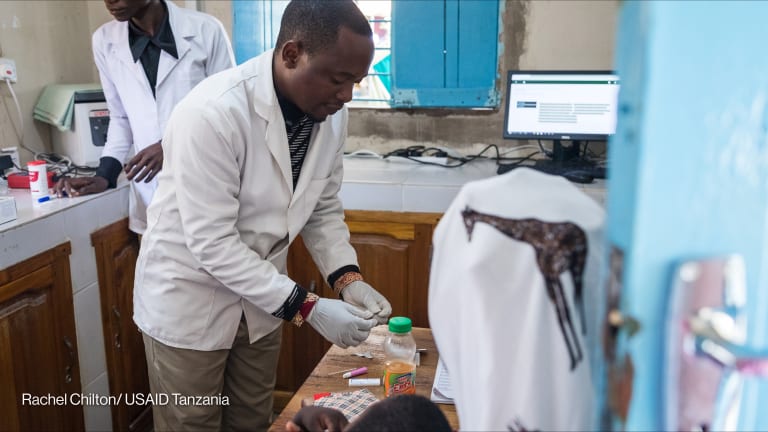Opinion: Protecting hard-won global health gains in a 'post-aid' world

Transitioning away from donor aid is global development good news. Countries are growing wealthier and increasingly self-sufficient. But within this broader success story, withdrawal of donor support for procuring high-quality medicines, diagnostics, and devices threatens to leave middle-income countries in the lurch.
Together, the efforts of bilateral and multilateral global health organizations have rapidly expanded access to cost-effective health technologies around the world. With aid transition, procurement of those lifesaving products is moving rapidly from the global to national or subnational levels — and, in the process, threatening the global health community’s capacity to ensure a reliable and affordable supply of high-quality essential medicines and other health products in the coming years. In a new Center for Global Development report, we found several serious problems with how self-procuring middle-income countries buy and access lifesaving health products.
First, country purchasers may face high — and highly variable — prices. Global health institutions, such as the Global Fund and Gavi, aggregate demand across multiple countries through institutional negotiations. Pooling purchases at the global level helps lower drug prices by minimizing transaction costs, ensuring greater reliability for suppliers, and building negotiating power.
But as countries become ineligible for donor support, more fragmentation could result in higher prices. For example, self-procuring middle-income countries pay between $10 and $50 for a single dose of pneumococcal conjugate vaccine, compared to the Gavi-negotiated price of roughly $3. Faced with these high prices, countries such as Thailand have found that the vaccine would not be locally cost-effective — and have decided against its introduction.
Second, as development assistance for health wanes, middle-income governments can be slow to fill the resulting financing gap. Without robust public financing of essential medicines, many patients turn to the private sector. Donors account for half of all spending on health products in low-income countries, but in lower-middle-income countries, 80 percent of health products are procured through the private sector, where most households pay out of pocket. This “missing middle” problem — observed both in our work and IHME’s analysis of global health financing trends — could undermine progress toward universal health coverage.
Third, as countries move toward self-procurement, medicines of unknown or poor quality may enter the supply chain. In collaboration with the World Health Organization’s prequalification program, global health funders have helped ensure consistent quality for many donor-purchased health products. In the absence of robust quality control systems — a frequent problem in low- and middle-income countries — purchasers may be unable to ensure quality and safety. For example, the Global Drug Facility found that 29 low- and middle-income countries purchased tuberculosis medicines of unknown quality between 2016 and 2018.
If we want to ensure universal access to lifesaving health products, the transition from current global health mechanisms — the so-called “end of aid”— cannot be the end of global health cooperation. Instead, global health institutions must sustain, and possibly expand, global cooperation for procurement with an evolving toolkit tailored to the changing context.
At the global and regional levels, new and expanded pooled procurement mechanisms can help counter the perverse effects of fragmentation, while donor support for information-sharing, market intelligence, and e-platforms can equip public purchasers with greater visibility into product quality and pricing. Finally, even after countries have transitioned from external aid, donors should consider continued subsidies for specific products that have important positive externalities or that are marginally cost-effective.
By reimagining global cooperation for procurement, we can protect hard-won gains and accelerate progress in global health — even in a “post-aid” world.
Search for articles
Most Read
- 1
- 2
- 3
- 4
- 5









